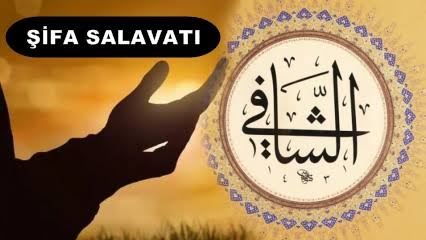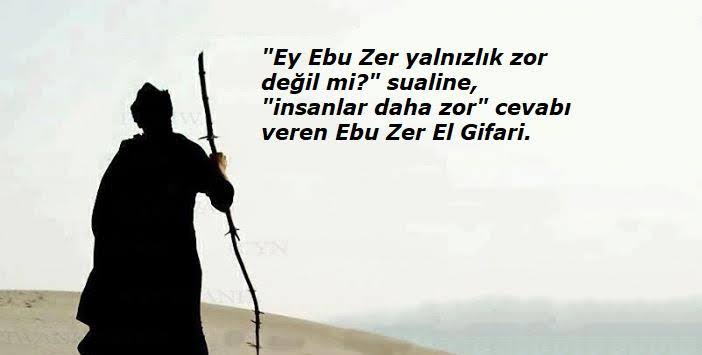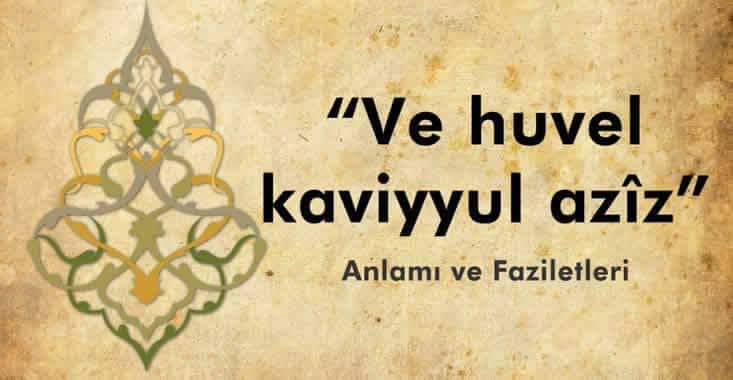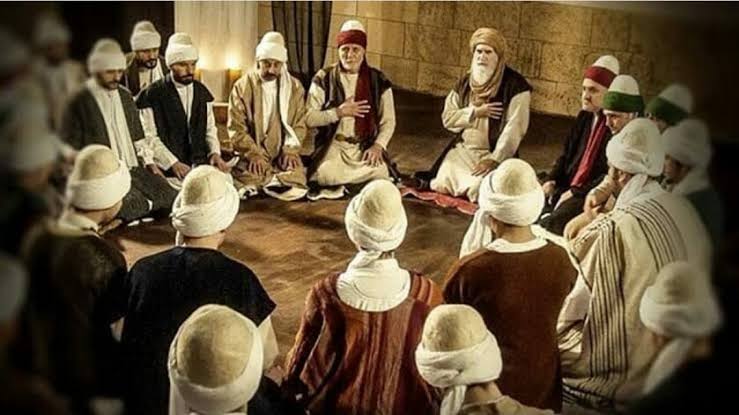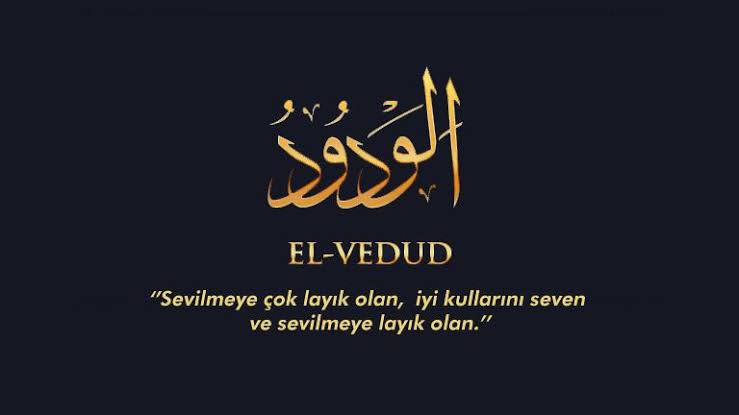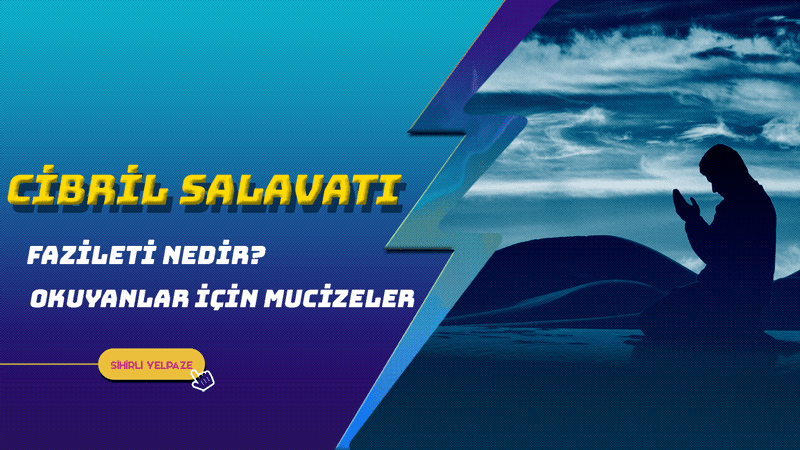🎉Sihirli Yelpaze Sunar🎭
Kur’an-ı Kerim’den önce dünyaya Allah tarafından indirilen kutsal kitapların, bazı kimselerce değiştirilmesi konusunu birlikte inceleyelim…
Kur’an’dan önce dünyaya gelen ve bugün elde bulunan İlâhî Kitapların hiçbirisi, Allah’ın peygamberlerine indirdiği semavî kitapların orijinali değildir. Bunların zaman geçtikçe asıl nüshaları kaybolmuş, bir takım insanlar tarafından yeniden yazılmışlardır. Bu nedenle de içlerine hurafeler ve bâtıl inançlar karışmıştır.
Meselâ Tevrat’ın, Hz. Musa (as)’dan sonra uzun asırlar esir ve sürgün hayatı yaşayan, hattâ bir ara inançlarını bile kaybedip putperestliğe düşen Yahudiler tarafından muhafaza edilemediği; bugün elde olan nüshanın Hz. Musa’dan çok sonra bâzı din adamları tarafından yazıldığı, lakin Tevrat’ın orjinali imiş gibi yeniden din kitabı olarak kabul edildiği bilinen tarihî gerçeklerdendir.
Böyle uzun ve karışık bir devreden sonra ortaya çıkarılan bir kitabın Hz. Musa’ya indirilen Tevrat’ın aynısı olamayacağı nettir. Bu nedendir ki, içinde peygamberlere yakışmayacak isnad ve iftiralar yer almakta; tevhid dîninin ruhuna aykırı düşen hükümler bulunmaktadır.
Davud’a (as) gelen Zebur da, Tevrat’ın mâruz kaldığı akıbetten kurtulamamıştır.
İncil’e gelince, Hz. İsa (as) kendisine gelen vahiyleri yazdırmamıştı. Çünkü otuz yaşında peygamber olmuş, otuz üç yaşında da peygamberlik vazifesi son bulmuştu. Üç sene gibi kısa bir zaman içinde de köyden köye, şehirden şehire dolaşıp, halkı irşâd için uğraşmıştı. Son zamanlarında ise, zaten Yahudilerin kışkırtmasıyla Romalı idareciler tarafından sürekli takip altında idi.
Bu durumda İncil’i yazdırmak için ne vakit, ne de bir imkân bulabilmişti. Nitekim bugün elde bulunan İnciller, müelliflerinin ismiyle anılmakta ve içinde Hz. İsa’nın havarilerine verdiği vaazlarını, ders ve irşadlarını ihtiva eden bir siyer kitabı görüntüsünü taşımaktadırlar. Üstelik de bunları yazanlar Hz. İsa’nın havarileri olan ilk mü’minler değil, onları görüp Hz. İsa’ya gelen İlâhî sözleri onlardan dinleyenlerdir.
Eldeki mevcut İncillerde bir takım muhteva ve anlatış farkları bulunmaktadır. Aslında bu İnciller, M.S. 325 tarihinde İznik’te toplanan bin kişilik bir ruhanî konsülün kararı ile kabul edilmiştir. Bu heyet, yüzlerce İncil’i incelemişler, 318 üyenin ittifakı ile aralarından Hz. İsa (as)’ın ulûhiyet tarafı olduğunu ileri süren bugün kü dört İncil’i kabul edip diğerlerini yakıp imha etmişlerdir.
Görüldüğü gibi, Hz. İsa (as)’ın -hâşâ- Allah’ın oğlu olduğu prensibi, Hz. İsa’dan seneler sonra bir meclis kararı ile kabul edilmiştir. Hattâ bu karara bâzı Hristiyan kiliseleri uymamışlardır. Bu bakımdan bugünkü dört İncil’in, Hz. İsa’ya indirilen İncil’in aslına uygun olduğunu söylemek olanaksızdır.
İlâhi vahiy olan semâvi kitaplar her türlü tezat ve ihtilaftan uzaktır. Zira gönderilen elçiye verilen kitap kelâmullahtır. İncilin tahrif edilmiş olduğu dört İncilin bulunmasından, bu incillerin, birbiri ile çelişip tezata düşmesinden, farklı bilgiler vermesinden, alenen anlaşılır.
Yine Matta İncil’inin amacı; İsa (as)’ın yaşamı, ölümü, dirilişi üzerinedir. Markos en kısa İncil olup, insanların İsa Aleyhisselâma gösterdikleri ilgi ve İsâ Aleyhisselâmın hayatından çokca bahseder. Luka ise, daha kitabının başında amacının İsa Aleyhisselâmın yaşamını doğru ve ayrıntılı biçimde anlatmak olduğunu açık seçik ortaya koyuyor. Kitabını Teofilosa hitaben (Luka: 1/3) yazdığını belirtmesi İsa Aleyhisselâma âit olmadığını gösterir. Yuhanna ise, İncil’i bizatihi kendisinin kaleme aldığını; Onun adıyla yaşama kavuşasınız (20/30-31) diyerek belirtmiştir.
İlâhi vahiy ise ancak Allah’ın kelâmı, sözü, beyanıdır. Peygamber ve ümmetine Allah’ın koyduğu kanunları, emirleri, nehiyleri içerir. Geçmiş peygamberlerden ve ölümden sonrasından haber verir.
Görüleceği üzere bu bahsedilen İnciller İsa Aleyhisselâmdan sonra yazılmış ve onun hayatını kaleme almışlardır. İlâhi vahyin nüshaları karışmış ve fakat İsa Aleyhisselâma inen gerçek İncil tahrif edilmiştir. İncelendiğinde, aklı selim ile düşünüldüğünde bu gerçek açıkça görülebilecektir.
– Bir kere İnciller, İsa Aleyhisselâmdan yüz yıl gibi bir zaman sonra yazılmışlardır, İsa Aleyhisselâmın dili ile yazılmamışlardır. Hatta Yeni Ahid’de yazıldığına göre İncil yazarları; sözlü söylentiyi saptayan ilk Hristiyan topluluğunun sözcülerinden başka bir şey değildir. İncil yazarlarından herbiri kendi uslûbuna, kendi kişiliğine, kendine özgün dini kaygılarına göre, çevrelerindeki gelenekten aldıkları sözler ile hikayeler arasında bir takım bağlar kurmuşlardır.
 |
| Kur’an dışındaki Kutsal kitapların değişime uğraması |
– Matta İncilinde (1/1-17) İsa Aleyhisselâmın babaları olarak verilen isimler toplamı (İbrahim Aleyhisselâm dahil) İbrahim Aleyhisselâma kadar kırktır. Luka İncilinin verilen isimler toplamı ise İbrahim Aleyhisselâm dahil elli beştir.
– Luka İncili (3/23-38), Mesihi Matat’a nisbet ederken. Matta İncili (1/16), Mesihi Dülger Yusufa nisbet etmiştir.
– Matta İncili (11/18) Yahya’nın yemiyerek ve içmeyerek geldiğini haber verirken, Markos İncili (1/6) Yahya’nın çekirge ve yaban balı yediğini söyler ki, bu iki haber birbirini çürütür.
– Matta (27/60); Markos (15/46); Luka (23/53)’ya göre ceset alınıp kaya içine oyulmuş bir kabre konulmuştur. Yuhanna (19/41)’ya göre ise, İsa’nın cesedi bahçede olan bir kabre konmuştur.
– Matta İncilinde (17/15) bir adamın saralı oğlunu kurtarması için İsa’ya geldiğini belirtirken, Markos İncili (9/17) dilsiz ruhu olan oğlunu İsa’ya getirdiğini söyler. Luka ise aynı olayı naklederken adamın, İsa’ya “Muallim! Sana yalvarırım, oğluma bak.” dediğini belirtir.
– İnciller Yunanca yazılmışlardır. Yeni Ahidde orijinalliğini muhafaza eden bazı terimler Yunanca değil, İbranicedir. Bu dahi tahrife delildir. Zira İsa Aleyhisselâmın dili Âramice (İbranice)dir.
– Matta İncilinin bildirdiğine göre Hazret-i İsa, Musa Aleyhisselâmın şeriatını yıkmaya değil, yapmaya geldiğini beyan etmiştir. (Matta: 5/ 17-18) Halbuki bugünkü Yeni Ahid, Musa Aleyhisselâmın şeriatının İsa Aleyhisselâm tarafından tamamen kaldırıldığını öğretmektedir. Bu bir tenakuz, çelişkidir.
– Hristiyanlığın temeli sayılan teslisle ilgili âyet şöyle idi: Çünkü gökte şehadet edenler üçtür: Baba, kelime ve Ruhul-Kudüs ve bu üç birdir ve yerde şehadet edenler üçtür. Ruh ve su ve kan ve bu birde mutabıktır.(Yuhannanın Mek: 5/ 7-8)
– 1881’de basılan tashihli nüshadan birinci kısım çıkarılmış ve bugünkü yeni baskılarda bu yoktur. Bu misal bize, Hristiyanlığın kutsal kitabı üzerinde tahrifler yapıldığını ve bu tahriflerin devam ettiğini göstermektedir.
– Matta’nın (5/39-40) “Kötüye karşı koma ve senin sağ yanağına kim vurursa, ona ötekini de çevir, bir mahkemeye gidip senin gömleğini almak isterse, ona abani da bırak.” şeklindeki sözü ile yine (Matta: 10/34) “Yeryüzüne selâmet getirmeğe geldim sanmayın; ben selâmet değil, fakat kılıç getirmeye geldim.” sözü arasında tezat vardır.
– Matta’ya göre (20/29) Eriha’dan çıkan İsa’ya, şifa için gelen körlerin sayısı ikidir. Markos’a göre (10/46) ise şifa için gelen körlerin sayısı birdir.
– Matta’ya göre (10/9) İsa Havârilerine yanlarına asâ bile almaya müsaade etmezken, Markos İncili’nin ifadesine göre (6/8), yanlarında asâ taşımalarını tavsiye etmiştir.
– Matta (25/15) hizmetçileri üç gösterirken, Luka (19/33) hizmetçileri on kişi gösterir.
– Göklerin melekutunda en büyüğün kim olduğu hakkında soruyu soran, Matta İncili’ne göre (18/1) İsa’nın talebeleridir. Markos İncili’ne göre (9/33-34) sorulan suali haber veren İsa’nın kendisidir.
– Markos İncili’nin bir bölümünde (1/1) “İsa Mesih’in İncili” denilirken, diğer bir bölümünde de (1/14) “Allah’ın İncili” denilmektedir.
– Luka İncili’nde bir yerde “Kurtarıcım Allah”, (Luka: 1/47) diğer bir yerde de “Kurtarıcı İsa” denilmektedir. (2/11)
– Hazret-i İsa için sık sık hem “Allah’ın oğlu”, hem de “Yusuf oğlu”, “Davud oğlu”, “Âdem oğlu” deyimleri kullanılmaktadır. Bunların hangisi doğrudur? İlâhi dinde böyle büyük tenakuzlar, kesinlikle olmaz. Bu ifadeler İncil’de ki tahrifatın büyüklüğünü göstermektedir.
– İncillerde dipnot olarak sık sık (Matta: 17/20-21, 18/10-11; Markos: 7/15-16, 11/25-28; Luka: 8/45, 9-56) “Birçok eski metinlerde şu sözler de yer alır.” denilmektedir. Yada Markos (16/20) de olduğu gibi, bu bölümün 9-20 ayetleri eski metinlerde yoktur, denilmektedir. Bu tahrifatı açıklayan alenilik Yuhannada (7/53 – 8/11)de de mevcuttur.
Bu gibi çelişki ve tutarsızlıklar, Allah Teâlâ’ya nisbet edilen bir kitapta bulunmaz. Diğer yandan Allah Teâlâ’nın kulu ve elçisi olan bir peygamber de kendini Allah yerine koymaz ve kendine taptırmaz. Binaenaleyh İsa Aleyhisselâma indirilen İncilin sonradan insan eliyle yazıldığı ve tahrif edildiği anlaşılmaktadır.
İncil’in tahrif edildiğini Kur’an-ı kerim şöyle haber vermektedir:
“Onlardan bir grup, okuduklarını kitaptan sanasınız diye kitabı okurken dillerini eğip bükerler. Halbu ki okudukları kitaptan değildir. Söyledikleri Allah katından olmadığı halde ‘Bu Allah katındandır.’ derler. Onlar bile bile Allah’a iftirâ ediyorlar.” (Âl-i imran, 3/78)
– Kur’an’ın Dışında ki İlâhî Kitaplar Tahrif Edildiklerine Göre, Bunlara İman Nasıl Olur?
Biz Müslümanlar, Hz. Musa, Hz. Dâvud ve Hz. İsa Aleyhimüsselâm’a Tevrat, Zebur ve İncil adını taşıyan İlâhî kitaplar gönderildiğine ve bu kitapların hak ve tevhid dînine aykırı hiçbir hüküm taşımadığına inanır, Allah’ın izni ile bunu biliriz. Lakin ne var ki, bu kitaplar sonradan muhafaza edilemeyerek asılları kaybolmuştur.
Bugün Yahudi ve Hristiyanların ellerinde bulunan kitapların içinde, peygamberlere indirilmiş olan vahiylerden hiçbir şey yoktur denilemez. Lakin, içine hurafe ve bâtıl itikadların karıştığı da bir vakıadır. Bu nedenle, bu kitaplara karşı ihtiyatlı davranırız. İçinde bulunan Kur’an’a uygun hükümlerin, vahiy mahsulü olduğunu kabul ederiz.
Kur’an’a zıd düşen hükümlerin ise, sonradan o kitaplara ilâve edildiğine ihtimal veririz. O kitapların Kur’an’a uygunluk veya zıd düşme durumu söz konusu olmayan haberlerinde ise, sükût ederiz. Ne kabul, ne de reddederiz. Çünkü onların vahiy eseri olma ihtimali olduğu kadar, olmama ihtimali de bulunmaktadır.
Bu konuda Ebû Hüreyre (ra) şöyle demiştir:
«Ehl-i Kitab, Tevrat’ı İbranice (metni) ile okurlar, Arab diliyle de Müslümanlara tefsir ederlerdi. Bu hususta Resûlüllah (asm) ashabına şöyle buyurdu:
«Siz Ehl-i kitabın sözlerini ne tasdik, ne de tekzib ediniz. Ancak deyiniz ki:
‘Biz Allah’a, bize indirilen Kur’an’a; İbrahim’e, İsmail’e, İshak’a, Yâkub ve torunlarına indirilenlere; Musa’ya ve İsa’ya verilenlere ve (bütün) peygamberlere Rabbları katından gönderilen (kitab ve âyetler)’e îman ettik. Onlardan hiçbirini (kimine inanmak, kimini inkâr etmek suretiyle) diğerlerinden ayırdetmeyiz. Biz (Allah’a) teslim olmuş Müslümanlanz.’ ” (Bakara, 2/136).»
Kaynak : saygıdeğer, sorularla İslamiyet
Kur’an-ı Kerim’den önce dünyaya Allah tarafından indirilen kutsal kitapların, bazı kimselerce değiştirilmesi konusunu araştırdık. Bu konu hakkında ki soru ve düşüncelerinizi, yorumlar da bizimle paylaşmayı unutmayın…
🎉Sihirli Yelpaze Sundu🎭
Makalemizi paylaşmayı ve duygularınızı emoji simgeleriyle ifade etmeyi unutmayın 🤗
Makalenin İngilizcesi ;
🎉Offers a Magic Fan🎭
Let’s examine together the issue of changing the holy books that were sent down to the world by Allah before the Qur’an, by some people…
None of the Divine Books that were born before the Qur’an and are available today are not the originals of the heavenly books that Allah revealed to His prophets. As time passed, the original copies of these were lost and they were rewritten by some people. For this reason, superstitions and superstitions were mixed with them.
For example, the Torah, Hz. It could not be preserved by the Jews, who lived in captivity and exile for centuries after the Prophet Moses (pbuh), and even lost their faith for a while and fell into idolatry; The copy available today is Hz. It is one of the historical facts known that it was written by some clergy long after Moses, but it was accepted as a religious book again as if the Torah was the original.
After such a long and complicated period, a book that was revealed, Hz. It is clear that the Torah that was revealed to Moses cannot be the same. It is for this reason that there are accusations and slanders that do not suit prophets; There are provisions that contradict the spirit of the religion of tawhid.
The Psalms that came to David (as) could not escape the fate that the Torah suffered.
As for the Bible, Jesus (pbuh) did not write down the revelations that came to him. Because he became a prophet at the age of thirty, and his duty as a prophet ended at the age of thirty-three. In a short period of three years, he traveled from village to village, city to city, and tried to guide his people. In his last days, he was already under constant surveillance by the Roman rulers at the instigation of the Jews.
In this situation, he had neither the time nor the opportunity to write the Bible. As a matter of fact, the Bibles available today are called by the names of their authors and include Hz. They bear the image of a sirah book containing the sermons, lessons and guidance given by Jesus to his apostles. Moreover, those who wrote them Hz. Not the first believers who were the apostles of Jesus, but seeing them and Hz. They are those who listen to the divine words that came to Jesus from them.
There are some differences in content and narration in the existing Bibles. Actually, these Gospels, M.S. It was accepted by the decision of a spiritual council of a thousand people gathered in Iznik in 325. This delegation studied hundreds of Bibles, with the alliance of 318 members, among them Hz. They accepted the four Gospels of today, which claim that Jesus (pbuh) was the side of divinity, and burned and destroyed the others.
As can be seen, St. The principle that Jesus (pbuh) is the son of Allah, the Prophet. It was accepted by a council decision years after Jesus. Even some Christian churches did not comply with this decision. In this regard, today’s four Gospels, Hz. It is impossible to say that the Gospel revealed to Jesus is true to the original.
Heavenly books, which are divine revelations, are free from all kinds of contradictions and conflicts. Because the book given to the messenger sent is kalamullah. It is obvious from the fact that there are four Gospels that have been corrupted, that these gospels contradict each other and give different information.
Again, the purpose of the Gospel of Matthew; It is about the life, death and resurrection of Jesus (pbuh). Mark is the shortest Gospel, and it talks a lot about people’s interest in Jesus and the life of Jesus. Luke, on the other hand, makes it clear at the beginning of his book that his aim was to describe the life of Jesus Christ accurately and in detail. The fact that he wrote his book addressed to Theophilos (Luke: 1/3) shows that it does not belong to Jesus. John, on the other hand, wrote the Gospel himself; He stated that in his name you may attain life (20/30-31).
Divine revelation is only the word, word, and statement of Allah. It includes the laws, orders and prohibitions that Allah has placed on the Prophet and his ummah. It foretells past prophets and the afterlife.
As it can be seen, these Gospels were written after Jesus and they wrote down his life. The copies of the divine revelation were mixed, but the true Bible, which was sent to Jesus, was distorted. When examined, this fact will be clearly seen when thought of with common sense.
– First of all, the Gospels were written a hundred years after Jesus, they were not written in the language of Jesus. In fact, according to what is written in the New Testament, the writers of the Bible; they are none other than the spokespersons of the first Christian community to detect oral rumor. Each of the Gospel writers has established some bonds between the words they took from the tradition around them and the stories according to their own style, personality and unique religious concerns.
– The sum of the names given as the fathers of Jesus (PBUH) in the Gospel of Matthew (1/1-17) is forty (including Abraham) up to Abraham. The total of the names given in the Gospel of Luke is fifty-five, including Abraham.
– The Gospel of Luke (3/23-38) attributing Christ to Matat. The Gospel of Matthew (1/16) attributes the Messiah to Dülger Joseph.
– While the Gospel of Matthew (11/18) reports that John came without eating or drinking, the Gospel of Mark (1/6) says that John ate locusts and wild honey, which contradicts each other.
– Matthew (27/60); Mark (15/46); According to Luke (23/53), the corpse was taken and placed in a tomb carved into the rock. According to John (19/41), Jesus’ body was placed in a tomb in the garden.
– While the Gospel of Matthew (17/15) states that a man came to Jesus to save his epileptic son, the Gospel of Mark (9/17) states that he brought his son with a mute spirit to Jesus. As Luke narrates the same event, the man said to Jesus, “Teacher! I beg you, look at my son.” indicates what he said.
The Bibles were written in Greek. Some terms that retain their originality in the New Testament are Hebrew, not Greek. Even this is evidence of falsification. Because the language of Jesus (PBUH) is Aramaic (Hebrew).
– According to the Gospel of Matthew, Hadrat Isa declared that he did not come to destroy the law of Moses, but to do it. (Matthew: 5/ 17-18) However, today’s New Testament teaches that the law of Moses was completely abolished by Jesus. This is a contradiction, a contradiction.
– The verse about the trinity, which is considered the foundation of Christianity, was as follows: Because there are three witnesses in heaven: the Father, the Word and the Holy Spirit, and these three are one, and those who testify on earth are three. Spirit and water and blood and this is also in agreement. (John: 5/ 7-8)
– The first part has been removed from the corrected copy published in 1881 and it is missing in today’s new editions. This example shows us that there were falsifications on the holy book of Christianity and that these falsifications continue.
– Matthew (5/39-40) “Coma against evil and whoever hits your right cheek, turn the other one to him, if he wants to go to a court and take your shirt, leave him your coat.” (Matthew: 10/34) “Do not think that I have come to bring peace to the earth; I have not come to bring peace, but a sword.” There is a contradiction between the words.
– According to Matthew (20/29) the number of blind people who came to Jesus for healing from Jericho was two. According to Mark (10/46) the number of blind people coming for healing is one.
– According to Matthew (10/9), while Jesus did not allow his Apostles to even take scepters with them, according to the statement of the Gospel of Mark (6/8), he advised them to carry scepters with them.
– Matthew (25/15) shows servants as three, while Luke (19/33) shows servants as ten.
– According to the Gospel of Matthew (18/1), it is the disciples of Jesus who ask the question about who is the greatest in the kingdom of heaven. According to the Gospel of Mark (9/33-34) it is Jesus himself who informs the question asked.
– In one part of the Gospel of Mark (1/1) it is called the “Gospel of Jesus Christ”, while in another part (1/14) it is called the “Gospel of God”.
– In the Gospel of Luke, it is called “My Savior God” at one place and “Jesus the Savior” at another place (Luke: 1/47). (2/11)
– The terms “son of God”, “son of Joseph”, “son of David”, “son of Adam” are frequently used for Hadrat Isa. Which of these is true? Such great contradictions in the divine religion certainly do not happen. These statements show the magnitude of the distortion in the Bible.
– Often as footnotes in the Gospels (Matthew: 17/20-21, 18/10-11; Mark: 7/15-16, 11/25-28; Luke: 8/45, 9-56) words are included. is called. Or, as in Mark (16/20), it is said that verses 9-20 of this chapter are not found in ancient texts. The publicity that explains this distortion is also present in John (7/53 – 8/11).
Such contradictions and inconsistencies cannot be found in a book attributed to Allah. On the other hand, a prophet, who is the servant and messenger of Allah, does not put himself in the place of Allah and does not make himself worship. Therefore, it is understood that the Bible, which was sent down to Jesus, was later written by human hands and distorted.
The Qur’an al-karim reports that the Bible has been corrupted as follows:
“A group of them bend their tongues while they read the book so that you may think that what they read is from the book. However, it is not from the book they are reading. Although what they say is not from Allah, they say, ‘This is from Allah.’ They say, ‘They slander Allah knowingly.’ (Al-i imran, 3/78)
– Since the Divine Books Other than the Qur’an have been corrupted, how can one have faith in them?
We Muslims, Moses, St. David and Hz. We believe that divine books bearing the names of Torah, Psalms and the Bible were sent to Jesus, and that these books do not contain any provisions contrary to the religion of truth and monotheism, and we know this with Allah’s permission. However, these books could not be preserved and their originals were lost.
It cannot be said that there is nothing from the revelations revealed to the prophets in the books that are in the hands of Jews and Christians today. However, it is also a fact that superstition and superstitions are mixed in it. Therefore, we are wary of these books. We accept that the provisions in accordance with the Qur’an are the product of revelation.
We assume that the provisions contradicting the Qur’an were added to those books later on. We remain silent in the news of those books that are not compatible with the Qur’an or contradictory. We neither accept nor reject. Because as much as there is a possibility that they are the work of revelation, there is also the possibility that they are not.
Abu Huraira (ra) said:
“People of the Book used to read the Torah in Hebrew (text) and interpret it to Muslims in Arabic. In this regard, the Messenger of Allah (pbuh) said to his Companions:
“You do not confirm or deny the words of the People of the Book. But say:
‘We belong to Allah, to the Qur’an that was revealed to us; What was revealed to Abraham, Ishmael, Isaac, Jacob and their descendants; We believe in what was given to Moses and Jesus and in the (books and verses) sent to (all) prophets from their Lord. We do not distinguish any of them from the others (by believing some and denying others). We are Muslims who have surrendered (to Allah).’ ” (Baqara, 2/136).»
Source : venerable, Islam with questions
We researched the subject of changing the holy books that were sent down to the world by Allah before the Qur’an, by some people. Do not forget to share your questions and thoughts on this subject, as well as in the comments…
🎉Magic Fan Presented🎭
Don’t forget to share our article and express your feelings with emoji icons 🤗






